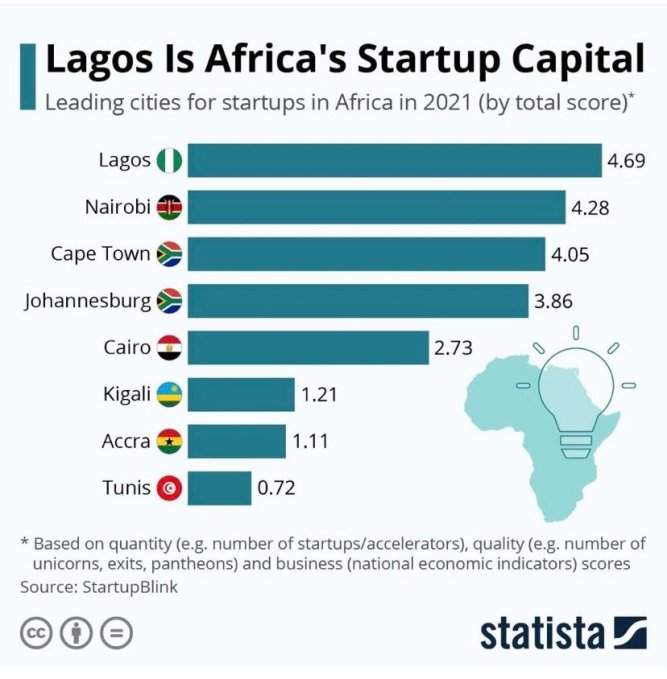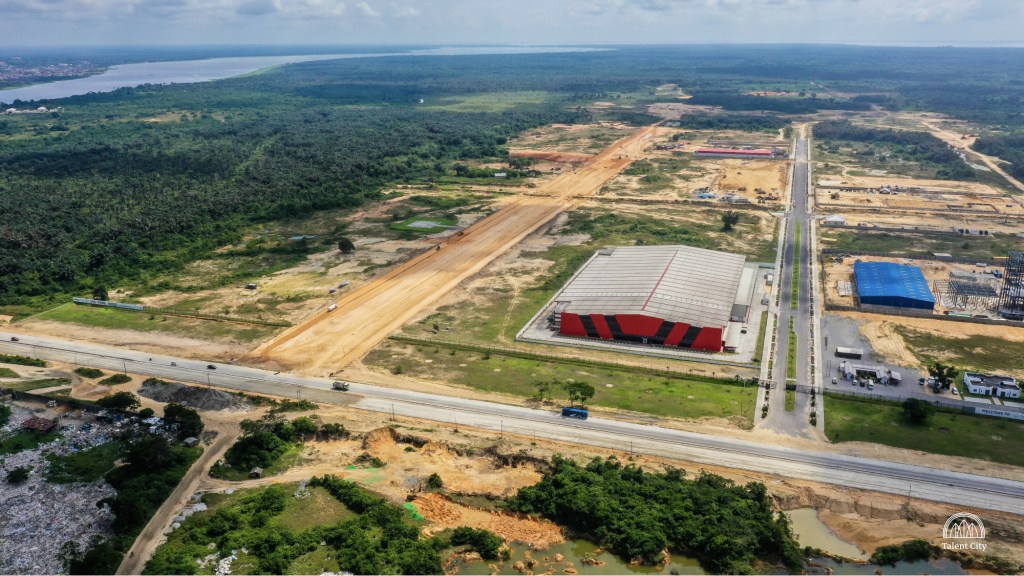African cities, particularly sub-Saharan ones, have the fastest global urban growth rate. But with challenges around overcrowding, congestion, infrastructure, power and poor governance, these cities are maxed out in what they can provide to the average African living in urban environments.
Some experts think charter cities offer a solution. They are granted a special jurisdiction to create a new governance system and allow city officials to adopt best practices in commercial regulation.
Typically, charter cities are public-private partnerships between city developers and host countries. There are a few examples of successful charter cities globally—Singapore, Shenzhen and Dubai among them—but most have underperformed or failed, especially in Nigeria.
For instance, Eko Atlantic, a purpose-built city near Lagos, planned to house more than 250,000 people in an area where a large majority of its 15 million population cannot afford housing. The ongoing project, which commenced in 2009, also threatens to displace tens of thousands of people who live in coastal areas around the new development.
Nigeria’s special economic zones (SEZ)—regions with different business and trade laws from the rest of the country, with tax and business incentives coupled with regulatory innovation—have also struggled. For example, the 16,500-hectare Lekki Free Trade Zone hasn’t lived up to expectations.
The precedent set by these two plans showcases a more significant problem: Charter cities and SEZs often can’t escape the crisis and economic stagnation of their host state, particularly in poor countries.
This is why there’s some skepticism surrounding the Talent City project, a futuristic charter city for tech professionals announced in January 2020 by Future Africa, a firm housing rolling funds and collectives that invest in African startups. But the firm believes the planned city will be a success because it will focus on “creating jobs and attracting the talent that drives Africa’s technology, innovation and digital economy.”
Talent City, in a statement, the city will be managed within a free trade zone with its own “productivity-focused, entrepreneurial-centred regulations and bylaws.”
Do African states need charter cities for tech?
It’s been two years since this announcement. And while no single structure has been constructed, Future Africa general partner Iyinoluwa Aboyeji and his partners have continuously touted Talent City’s promise.
Progress has been incremental, but Talent City has acquired land to begin construction of its first location: Talent City Lagos, a 72,000-square-meter plot of land located in Alaro City, a 2-000 hectare city-scale development area in the Lekki Free Zone.
This first prototype city, featuring a central coworking campus and a variety of housing options, will be home to 1,000 residents and 2,500 remote workers. These figures are subject to change, the company said.
https://twitter.com/iaboyeji/status/1217874631979343874?ref_src=twsrc%5Etfw%7Ctwcamp%5Etweetembed%7Ctwterm%5E1217874631979343874%7Ctwgr%5E%7Ctwcon%5Es1_&ref_url=https%3A%2F%2Fwww.chartercitiesinstitute.org%2Fpost%2Fthe-telegraph-the-tech-boss-who-wants-to-build-a-private-city
On a call with TechCrunch, Aboyeji, who kickstarted the project with Luqman Edu and Coco Liu, points out three main problems Talent City hopes to solve for techies.
During Aboyeji’s time at Andela, the company was still a tech talent incubator and housed engineers in its hubs. Between 2014 to 2017, the company spent heavily on office settings and living quarters because most real estate developers in Lagos didn’t understand how to build real estate for tech people, said the Andela and Flutterwave founder.
Andela, like many others, also faced issues around power, internet and commutes. Furthermore, these startups contend with stifling government policies (2020’s ride-hailing ban and last year’s cryptocurrency ban come to mind), political instability and security issues.
“This was not just an Andela problem,” said Aboyeji, who also co-founded payments unicorn Flutterwave. “Today, I run an investment firm with 60 portfolio companies (mostly technology companies) and over $20 million in assets under management, and they all continue to tell me the infrastructure problem has not only gotten worse but more expensive to solve.
“Over the years, the industry has grown from when I was at Andela. Last year, the technology industry raised over $1.4 billion in venture capital. Yet entrepreneurs in Lagos are still stuck in a subpar environment despite a strong drive to build, deeply frustrated with their living conditions along with a system that is not functional.”
Talent City, he claims, could remedy these problems.
According to Aboyeji, Talent City is being designed for remote work and built for the niche of tech entrepreneurs and professionals. The charter city will provide infrastructure for tech such as constant power and high-speed internet; favorable policies that enable innovation; and a like-minded community of people who live and work in proximity to each other.
Aboyeji said that constructing the compound within the larger ecosystem of Alaro City will shield Talent City and its inhabitants from knee-jerk government reactions to policy changes, which will be critical to its ultimate success.
“We’re trying to build for the part that we’re good at, which is the community and the technology piece of things. We’re not trying to reinvent the wheel by negotiating something new with the government,” said Liu, a former designer at Google and Line and Talent City’s head of operations and experience.
“And that’s why we positioned ourselves strategically in the Free Trade Zone within a larger city. So we have de-risked in terms of policy and infrastructure from both sides of the ecosystems we belong to.”
Africa’s new Silicon Valley?
Liu’s comments are telling. Contrary to other charter cities, which are built as public-private partnerships, Talent City’s first project in Lagos would eschew government participation.
Talent City is taking advantage of Alaro City’s already-formed partnership with the Lagos state government, thus providing some coverage in that aspect, said Edu, adding that the company took this route because it needs to be able to test out ideas in Lagos before using it as a prototype to replicate in other parts of Africa.
“The plan for Talent City is to scale across Africa… We are already speaking strategically about where we intend to put the second one once we get this one up and running. We have set up charter cities across Africa from the beginning,” said Edu, who also owns real estate services and proptech companies currently operating in 12 states of Nigeria.
It’s understandable why the team thinks highly of its project. But Nigeria’s tech ecosystem—with Lagos at the forefront, even regionally (the city is Africa’s startup capital from the recent StartupBlink report released this month)—has managed to pull in billions of dollars in venture capital funding and minted three unicorns last year, despite battling all of the infrastructure challenges.
So is Talent City even necessary?

Aboyeji argues that while a lot of money has been pumped into Nigerian tech, real estate prices for offices and housing are becoming prohibitively expensive due to a lack of infrastructure, which Talent City wants to fix.
Also, in the past, founders and tech professionals alike touted Yaba, a suburb of Lagos, as the country’s Silicon Valley. But big company exits by the likes of Andela and Konga in 2017 (and several others over the years) due to infrastructure deficits and a fading sense of community has stained the town’s once-heralded tech reputation.
And though we now operate in a remote-first world, companies cannot guarantee that their employees have what it takes to deliver amenities themselves consistently. So although startups and tech professionals have found different places to thrive within Lagos, especially on the island part of the city, Talent City is hoping to draw in that talent to become “Africa’s Silicon Valley.”
The company said its pricing will be competitive enough for individuals and corporations as it “offers monthly rent and mortgages to match global expectations,” along with communal benefits of working together.
Aboyeji said his venture capital firm, Future Africa, which is remote-first, will also move its headquarters to the new city. Future Africa is the majority owner of the project. With founding residents such as prominent founders and VCs (Yele Bademosi, Timi Ajiboye, Nadayar Enegesi and Kola Aina have already taken pieces of real estate), local tech companies may make similar transitions — if the city takes shape.

Talent City will be working with Amsterdam-based design and urbanism firm NLÉ and real estate agency Jones Lang LaSalle for community and development management purposes.
The charter city—backed by Pronomos, Charter Cities Institute, Ventures Platform and LoftyInc—has raised more than $13 million for its Lagos project. However, Aboyeji said fundraising efforts are still ongoing. The first construction phase is set to begin by May, with some structures completed by the end of 2023.
“We can’t build a $1.4 billion industry in thin air. I mean, it sounds romantic. And so people want to try it. And I’ve been one of those advocates of attempting it. But the ecosystem must have an address,” said Aboyeji, who referenced a trip to Israel as an influential factor in starting Talent City.
“So I think the important thing is that this becomes that address for the ecosystem, it becomes where people come together to do tech. It has amazing prospects; there’s a seaport opposite our location and an airport about 20 minutes away, so this is undoubtedly going to be the future of Lagos. And I think it would be really fun for tech to get here first.”
Aboyeji isn’t the only tech leader trying to build a private city. Ryan Rzepecki, an ex-Uber executive who sold his electric bike company Jump to the mobility tech giant, said in 2020 that he wanted to fund a politically autonomous charter city to welcome tech workers abandoning Silicon Valley during the pandemic.
However, his reasons differ from Aboyeji. In an interview with The Telegraph, Rzepecki said his goal was to fix the homelessness crisis in San Francisco.
“The way we have built regions and cities is not fundamentally sustainable and there is a chance to build new places that are better, more sustainable and environmentally friendly,” he said in the interview.
“There is a pretty broad spectrum of people who are interested in this and I think most people, or at least myself, are trying to make a better world in the broadest terms. It’s not like things are working for everybody on the planet at the moment. I think having some people say, ‘let’s try something different, shouldn’t be met with skepticism.’”
And some big-name investors aren’t skeptical: Peter Thiel and Marc Andreessen invested in Pronomos, a backer of Talent City. While successful charter cities have been created with government backing, the tech hubs of the future are attracting private funds, suggesting it’s only a matter of time before a blueprint is drawn for charter cities to be replicated globally.






























Comment